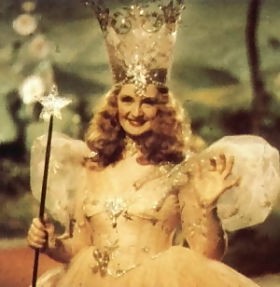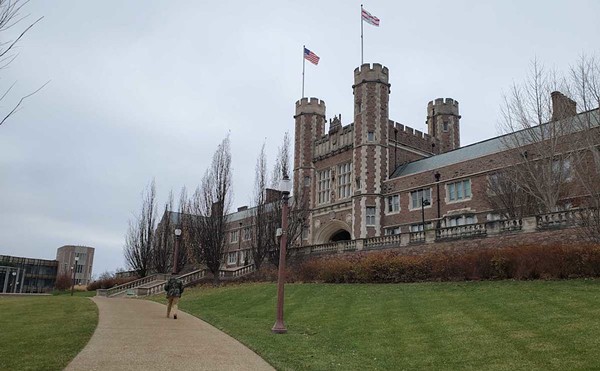It's probably entirely coincidental that the Ozark town that keeps a strict filter on its Internet browsers to ensure that none of its patrons happen to stumble on any websites about Wicca is called Salem. Or that the library director is named Glenda. But it does make a lawsuit, filed yesterday in the U.S. district court by the ACLU on behalf of a Salem resident named Anaka Hunter that much more entertaining.
As it happens, Hunter is neither a good witch nor a bad witch. She just happens to be part Native American, and, curious about her heritage, went to the Salem Public Library one day in July, 2010, to use the computer to do Internet research on Native American spirituality. Every site she tried was blocked by the library's Internet filtering system.
Puzzled, she asked Glenda Wofford, director of the Salem Library, what was going on. Wofford explained that the sites -- as well as sites devoted to Wicca, astrology and paganism -- were blocked because the library considered them related to the "occult" and "criminal skills."
Under Missouri law, public libraries are required to put filtering systems on their Internet browsers to keep patrons from checking out child porn. Some libraries, like Salem, also choose to filter out other material. Wofford told Hunter she could unlock certain sites for people who needed information for school projects and subsequently made more material available for Hunter: one page of one website.
When Hunter protested that she felt it was unfair to classify Native American spirituality along as "occult" or "criminal skills," Wofford told her that she had an "obligation" to call the "proper authorities" to report anyone who requested access to blocked sites if she thought they were going to misuse the information. Hunter interpreted this to mean Wofford was going to call the police and stopped trying to do her research at the Salem Public Library.
She did, however, bring the matter up at a library board meeting in November, 2010. "They listened to her, but they made no changes," reports Tony Rothert, one of the ACLU lawyers who filed the lawsuit on Hunter's behalf. "They didn't give a reason. They just said, 'Are you done?'"
Interestingly, although patrons of the Salem library can't access sites such as All About Spirituality, The Church and School of Wicca or even the Wikipedia entry on Wicca, they can look up paganism in The Catholic Encyclopedia and "Astrology and Horoscopes: The Bible and Christian View."
"It violates the establishment clause [in the First Amendment]," Rothert explains. "You can learn what the Catholic Church thinks of paganism, but if you want the pagan view of paganism, it's blocked. It gives preferential treatment to some religions. Any example of a minority religion discussed in a positive way has been blocked."
Rothert had hoped that the matter could be settled without a lawsuit, but Wofford and the library remained inflexible and declined to give an explanation for blocking Hunter's web search.
"It's a new age of book banning," he says.
But in his course of researching the case, he has made one positive discovery: Salem, Missouri, is as much of an outlier as Salem, Massachusetts, was in 1692, the year of the famous witch trials.
"Most public libraries are not engaged in viewpoint discrimination," he says "Most fix the problem."
You can read the entire lawsuit after the jump:






